Discovery, We Hardly Knew Ye
The uproar over the Ford Explorer’s move to a unibody, car-based platform was deafening, largely led by a chorus of internet know-it-alls who found it convenient to be outraged when it meant the opportunity for clicks (and were otherwise contemptuous of anything with a raised ride height and two box shape). No such outrage has been present for the new Land Rover Discovery’s err, crossing over.
I never cared much for the Disco, the LR3 or LR4, as they came to be known. Former EIC Baruth adored his ’97 5-speed Discovery, but where I grew up, they were little more than glorified carpool taxi, never seeing terrain more rugged than a gravel driveway.
The move to a unibody platform makes sense, no matter how hard the Land Rover faithful (or non-buying purists) might protest. Land Rover, like many great marques, has come a lifestyle brand, albeit with far less merchandising than some other premium nameplates. The newest Disco is a great accoutrement, and probably a very nice vehicle, if JLR’s latest crop of cars is anything to go by.
Its biggest flaws will be that
- A crop of non-buying know-it-alls finds it unsatisfactory due to its lack of off-road chops
- For many self-conscious buyers, it won’t be the most expensive Land Rover products, thus making it a shameful “poverty spec” alternative to the Range Rover lineup
Ironically, the very point of the Discovery range (as it will now be called) is to fulfill both of those mandates. No matter – since the Explorer moved to a more car-like unibody design, sales have increased each year JLR will sell plenty of Discos too.
More by Derek Kreindler
Latest Car Reviews
Read moreLatest Product Reviews
Read moreRecent Comments
- W Conrad I'm not afraid of them, but they aren't needed for everyone or everywhere. Long haul and highway driving sure, but in the city, nope.
- Jalop1991 In a manner similar to PHEV being the correct answer, I declare RPVs to be the correct answer here.We're doing it with certain aircraft; why not with cars on the ground, using hardware and tools like Telsa's "FSD" or GM's "SuperCruise" as the base?Take the local Uber driver out of the car, and put him in a professional centralized environment from where he drives me around. The system and the individual car can have awareness as well as gates, but he's responsible for the driving.Put the tech into my car, and let me buy it as needed. I need someone else to drive me home; hit the button and voila, I've hired a driver for the moment. I don't want to drive 11 hours to my vacation spot; hire the remote pilot for that. When I get there, I have my car and he's still at his normal location, piloting cars for other people.The system would allow for driver rest period, like what's required for truckers, so I might end up with multiple people driving me to the coast. I don't care. And they don't have to be physically with me, therefore they can be way cheaper.Charge taxi-type per-mile rates. For long drives, offer per-trip rates. Offer subscriptions, including miles/hours. Whatever.(And for grins, dress the remote pilots all as Johnnie.)Start this out with big rigs. Take the trucker away from the long haul driving, and let him be there for emergencies and the short haul parts of the trip.And in a manner similar to PHEVs being discredited, I fully expect to be razzed for this brilliant idea (not unlike how Alan Kay wasn't recognized until many many years later for his Dynabook vision).
- B-BodyBuick84 Not afraid of AV's as I highly doubt they will ever be %100 viable for our roads. Stop-and-go downtown city or rush hour highway traffic? I can see that, but otherwise there's simply too many variables. Bad weather conditions, faded road lines or markings, reflective surfaces with glare, etc. There's also the issue of cultural norms. About a decade ago there was actually an online test called 'The Morality Machine' one could do online where you were in control of an AV and choose what action to take when a crash was inevitable. I think something like 2.5 million people across the world participated? For example, do you hit and most likely kill the elderly couple strolling across the crosswalk or crash the vehicle into a cement barrier and almost certainly cause the death of the vehicle occupants? What if it's a parent and child? In N. America 98% of people choose to hit the elderly couple and save themselves while in Asia, the exact opposite happened where 98% choose to hit the parent and child. Why? Cultural differences. Asia puts a lot of emphasis on respecting their elderly while N. America has a culture of 'save/ protect the children'. Are these AV's going to respect that culture? Is a VW Jetta or Buick Envision AV going to have different programming depending on whether it's sold in Canada or Taiwan? how's that going to effect legislation and legal battles when a crash inevitibly does happen? These are the true barriers to mass AV adoption, and in the 10 years since that test came out, there has been zero answers or progress on this matter. So no, I'm not afraid of AV's simply because with the exception of a few specific situations, most avenues are going to prove to be a dead-end for automakers.
- Mike Bradley Autonomous cars were developed in Silicon Valley. For new products there, the standard business plan is to put a barely-functioning product on the market right away and wait for the early-adopter customers to find the flaws. That's exactly what's happened. Detroit's plan is pretty much the opposite, but Detroit isn't developing this product. That's why dealers, for instance, haven't been trained in the cars.
- Dartman https://apnews.com/article/artificial-intelligence-fighter-jets-air-force-6a1100c96a73ca9b7f41cbd6a2753fdaAutonomous/Ai is here now. The question is implementation and acceptance.



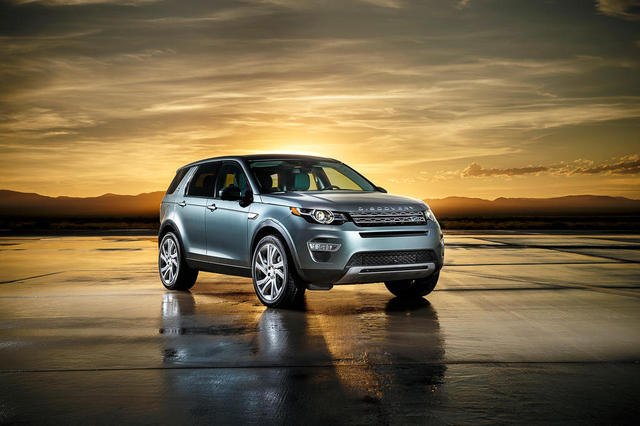



























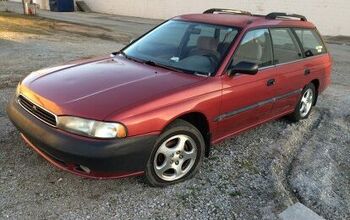
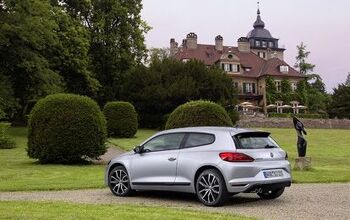
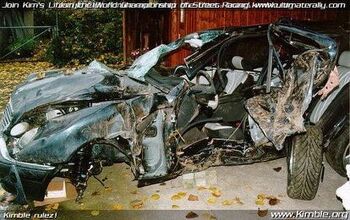





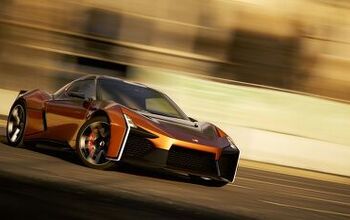





Comments
Join the conversation
What a brutal audience. This replaces the LR2. They just created a very attractive, reasonably efficient SUV, which may be the smallest 7 seat capable SUV on the market. It may look a little like a smaller Explorer (not that Dead Weight or anyone else here has seen one), but the Explorer sells like hotcakes for a reason. I have little doubt that while it won't be truly off road capable, it will be better in snow and mud than its competition in this space. Nobody goes off-roading in a car this expensive. My wife loved it immediately. I'll wait to see them live and see the specs, including actual prices. But this will sell 10X over the LR2.
TTAC should have been clearer. This model replaces the Freelander and is a massive leap forward from that model (at a price). The current Discovery will evolve and therefore should not dispoint loyal fans. Those people who want a Cherokee rival just need to wait for the new range of Defenders to launch. JLR are launching lots more SUV, there will be a mid size Range Rover, between the Evoque and Sport. And probably a smaller Disco. Lots and lots of new metal is on the way.